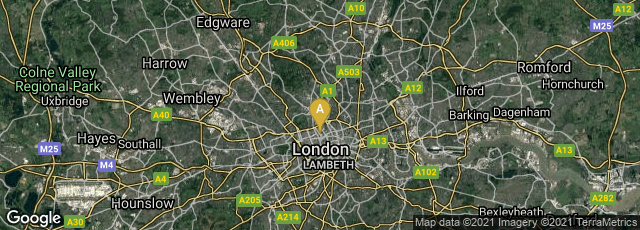

A: London, England, United Kingdom
In 1847 mathematician, logician and pioneer collector of the history of mathematics, Augustus de Morgan published Arithmetical Books from the Invention of Printing to the Present Time, being Brief Notices of a Large Number of Works Drawn up from Actual Inspection.
De Morgan's work was the first separately published bibliography on the history of science published in England, excluding economics; McCulloch's annotated bibliography of the history of economics preceded it in 1845. The bulk of de Morgan's book consisted of an extensively annotated list of treatises on arithmetic from 1491 to 1846, arranged in chronological order; de Morgan claimed that he had personally examined every book. Most of the books described were from de Morgan’s own library. De Morgan stated that he was able to acquire his library at relatively low cost because of the obscurity of the subjects involved. A few of the books he described came from the libraries of collector friends, and a few from the library of the British Museum. There is an index of 1,580 entries. In The History and Bibliography of Science in England (1968) A. N. L. Munby stated that “only in the physical descriptions of books cited is De Morgan’s great work disappointing.”
De Morgan was an eloquent exponent of the value of collecting the history of science. He wrote on p. ii his prefatory letter to Arithmetical Books:
“The most worthless book of a bygone day is a record worthy of preservation. Like a telescopic star, its obscurity may render it unavailable for most purposes; but it serves, in hands which know how to use it, to determine the places of more important bodies.”
After de Morgan's death in 1871 his library of about 4500 books, pamphlets, manuscripts and autograph letters was purchased by British banker and politician Samuel Jones-Loyd, 1st Baron Overstone and donated by him to the University of London, becoming the first special collection at the Unversity of London library. Even though de Morgan’s library was not kept together when it was transferred, his books were separately identified in the printed catalogue of the Library published in 1876. Thus it is possible to study one of the pioneering collections of books formed in England not just on mathematics, but on a wide range of the history of physical sciences. In 2012 the Senate House Library of the University of London showed examples from de Morgan's library on its website: http://www.ull.ac.uk/specialcollections/demorganexploration.shtml